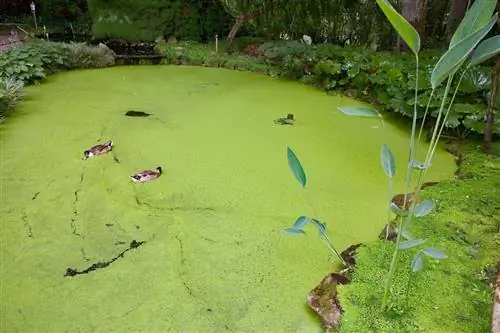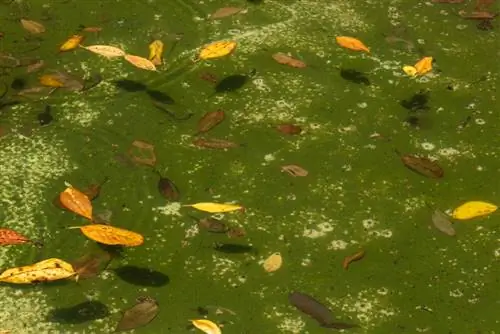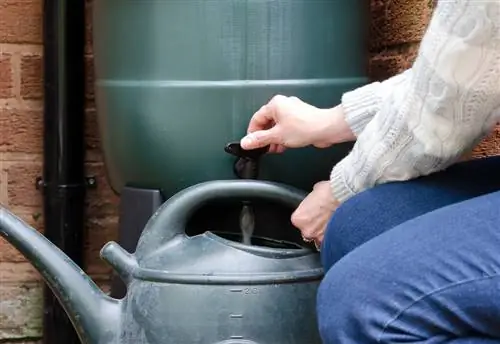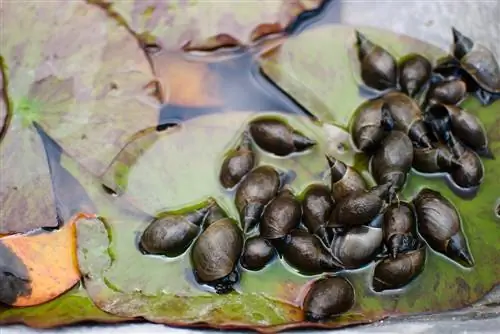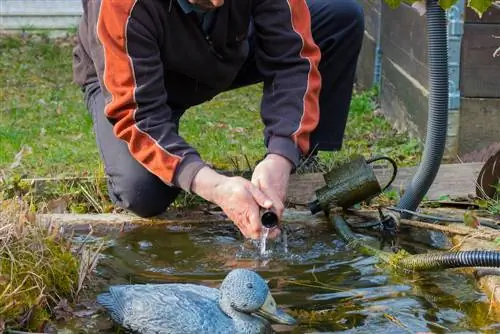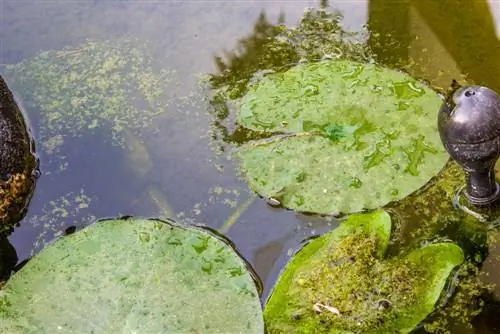- Author admin leonars@hobbygardeners.com.
- Public 2023-12-25 17:45.
- Last modified 2025-01-23 11:22.
Duckweed, known as duckweed, is rarely popular in garden ponds because hardly anyone knows the benefits of this small floating plant. In this article you will find out how to successfully use duckweed to combat algae - and much more!
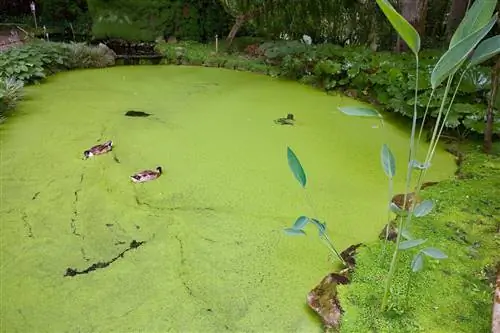
Do duckweed help against algae?
Duckweed can be used easily andvery effectively against algae. Although they do not destroy algae, they prevent excessive growth or a plague by depriving the algae of their livelihood, namely the two important factors of nutrients and light.
Are duckweeds an algae?
No, duckweed isnot algae. They are not related to them, but prefer similar habitats. The duckweed plant genus (bot. Lemna) includes around 15 different species, three of which are native to Central Europe:
- the small duckweed (bot. Lemna minor)
- the hunchback duckweed (bot. Lemna gibba)
- the three-furrowed duckweed (bot. Lemna trisulca)
How does duckweed work against algae?
By using up the existingnutrientsand shading thewater surface, duckweed deprives the algae of their livelihood. Because they are so easy to handle and yet effective, you can also use the small aquatic plants in mini ponds. Like other pond plants against algae, duckweed cannot completely prevent algae growth, but it can still significantly curb it. If too many duckweed form in your pond, they can be easily fished out with a clean net.
Does duckweed damage a fish pond?
In principle, duckweed isno harmfor the fish pond. Quite the opposite: many fish species feed (partly) on these floating plants. They are a very good source of protein. In Southeast Asia, duckweed is even used as food for humans. Young fish can easily hide from predators under the dense carpet of duckweed plants. The duckweed also serves as a food source for small water turtles and other pond inhabitants.
Do duckweed have other benefits?
Duckweed serves, among other things, as anearly warning systemfor the water quality in the pond. If the pond water contains too little of the nutrients iron or manganese, the duckweed will change color because they cannot produce enough chlorophyll.
In addition, duckweed also acts as asewage treatment plant by absorbing pollutants from the water.
Tip
Duckweed in the aquarium
Algae settle not only in the pond, but also in the aquarium and may have to be combated. Many aquarists like to use duckweed, which fish also like to use as additional food. Under ideal conditions, duckweed multiplies rapidly. Therefore, you should keep a close eye on the population and fish off some of the plants if necessary.

